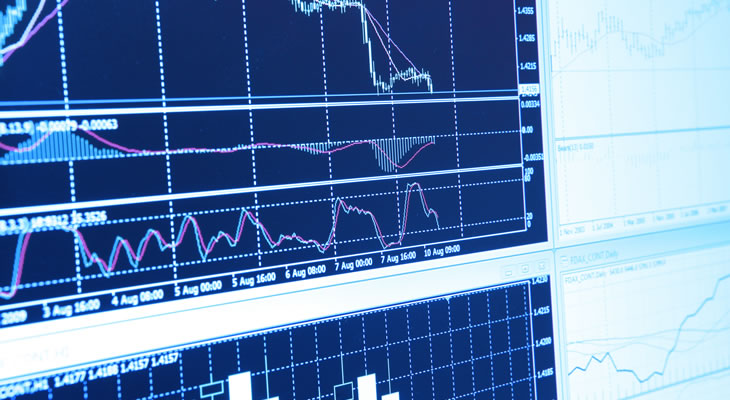The Pound Sterling to Canadian Dollar (GBP/CAD) and Turkish Lira (GBP/TRY) exchange rates fell in the second half of Thursday’s session while the British currency maintained gains against the Euro (GBP/EUR) and Russian Ruble (GBP/RUB) after the Bank of England (BoE) released its inflation report.
Investor sentiment rose when statements made by central bank Governor Mark Carney indicated the possibility of sooner-than-expected rate hikes.
Economist Vicky Redwood commented: ‘With the MPC fairly relaxed about the prospect for deflation, we still think there is a reasonable chance of a hike before the end of this year.’
In addition, conflict between Ukraine and Russia has caused volatility in the Ruble and pressured it lower against other major currency peers.
Earlier… The Pound Sterling exchange rate fell against the Canadian Dollar (GBP/CAD), Euro (GBP/EUR) and Turkish Lira (GBP/TRY) on Thursday while gaining against the Russian Ruble (GBP/RUB) ahead of the Bank of England (BoE) inflation report.
In addition, the RICS UK House Price Balance only showed 7% growth in January, much lower than the 12.0% forecast.
Earlier… The Pound Sterling to Euro (GBP/EUR), Canadian Dollar (GBP/CAD) and Russian Ruble (GBP/RUB) exchange rates began Wednesday’s European session trending higher while the Pound Sterling to Turkish Lira (GBP/TRY) exchange rate softened.
Despite Wednesday being a relatively quiet day for data, the British currency managed to climb against other major peers as investor sentiment in the UK economic recovery heightened.
Foreign exchange strategist Lee Hardman stated: ‘Some of the pessimism toward the UK economy at the end of last year seemed to have eased as recent data suggested the recovery here is solid. The Pound should remain supported, especially against the Euro.’
Tuesday saw the release of UK Manufacturing and Industrial Production figures. As manufacturing output failed to decline to the extent forecast, Sterling remained rather buoyant.
In December the annual figure was forecast to decline from 3.0% to 2.0%; however, the actual stat remained at a more favourable 2.4%. Meanwhile, Industrial Production flopped from 1.1% to 0.5% on the year.
Forex expert Jeremy Stretch commented: ‘The bias is toward going short the Euro against Sterling. Manufacturing and consumption data remained constructive. We expect more negative headlines this week regarding Greece’s debt negotiation.’
As Greek talks continue, the Euro is likely to be extremely volatile. Wednesday will be a tremendously important day for the Eurozone with the currency bloc’s finance ministers meeting to discuss the Greek situation.
Meanwhile, the Turkish Lira hit a fresh all-time low versus the US Dollar (TRY/USD) on Tuesday as Turkey’s central bank came under additional pressure to cut rates further.
Turkish President Recep Tayyip Erdogan has been insistent that the Central Bank of the Republic of Turkey should implement more rate cuts despite dropping borrowing costs on January 20th.
Erdogan commented: ‘There are still some who do not understand that if you cut interest rates you will cut inflation. Unfortunately, this is what we come to when the institution is independent.’
Sentiment toward the Lira has waned significantly as political and financial aspects of the economy conflict.
The Russian Ruble exchange rate has been sensitive to any developments in the dispute between Russia and Ukraine in recent weeks. Tuesday saw the Ruble regain some strength as discussions between Russia and Ukraine continued and investors hoped for an amicable end to the discord.
Strategist Vladimir Miklashevsky stated: ‘The meeting in Moscow was rather positive and news and hopes for a political solution to Ukraine’s crisis have come back again to the markets. Oil seems to be holding ground, not falling to $40 like many had expected.’
However, some economists suggest the talks aren’t having a massive impact on Ruble trading.
Industry expert Audrey Vashevnik commented: ‘The reason No.1 that Russian markets are rising is strong oil. All eyes are on the Ukraine peace talks, but so far we haven’t seen any results.’
The Canadian Dollar has been extremely receptive to changes in oil prices as black gold is Canada’s largest export. However, the ‘Loonie’ has also been dealing with other problems. The Canadian Dollar exchange rate softened as many economists fear another Bank of Canada (BOC) rate cut could be on the way.
BOC Senior Deputy Governor Carolyn Wilkins stated that the central bank has tools at its disposal to manage the recent slump in oil and would be prepared to use them if necessary.
Economist Randall Bartlett commented: ‘We expect that the Bank of Canada will take out additional insurance and reduce the overnight rate by a further 25 basis points at its upcoming interest rate announcement in March 2015.’
Pound Sterling Exchange Rate Forecast: GBP/EUR, GBP/CAD, GBP/RUB, GBP/TRY
The Pound Sterling exchange rate could fluctuate this week on the release of Thursday’s Bank of England (BoE) inflation report. The central bank’s views on consumer prices could pressure the Pound lower if negative.
BoE Governor Mark Carney has previously stated that inflation could dip below 0.0% as the price of oil weighs.
Governor Carney is scheduled to hold a press conference on Thursday and any dovish tones could see the Pound Sterling exchange rate drop.
The Pound Sterling to Euro (GBP/EUR) exchange rate is trending in the region of 1.3503. The Pound Sterling to Canadian Dollar (GBP/CAD) exchange rate is residing at 1.9254. The Pound Sterling to Turkish Lira (GBP/TRY) exchange rate is hovering at 3.7998. The Pound Sterling to Russian Ruble (GBP/RUB) exchange rate is trading around 100.5107 the mark.

